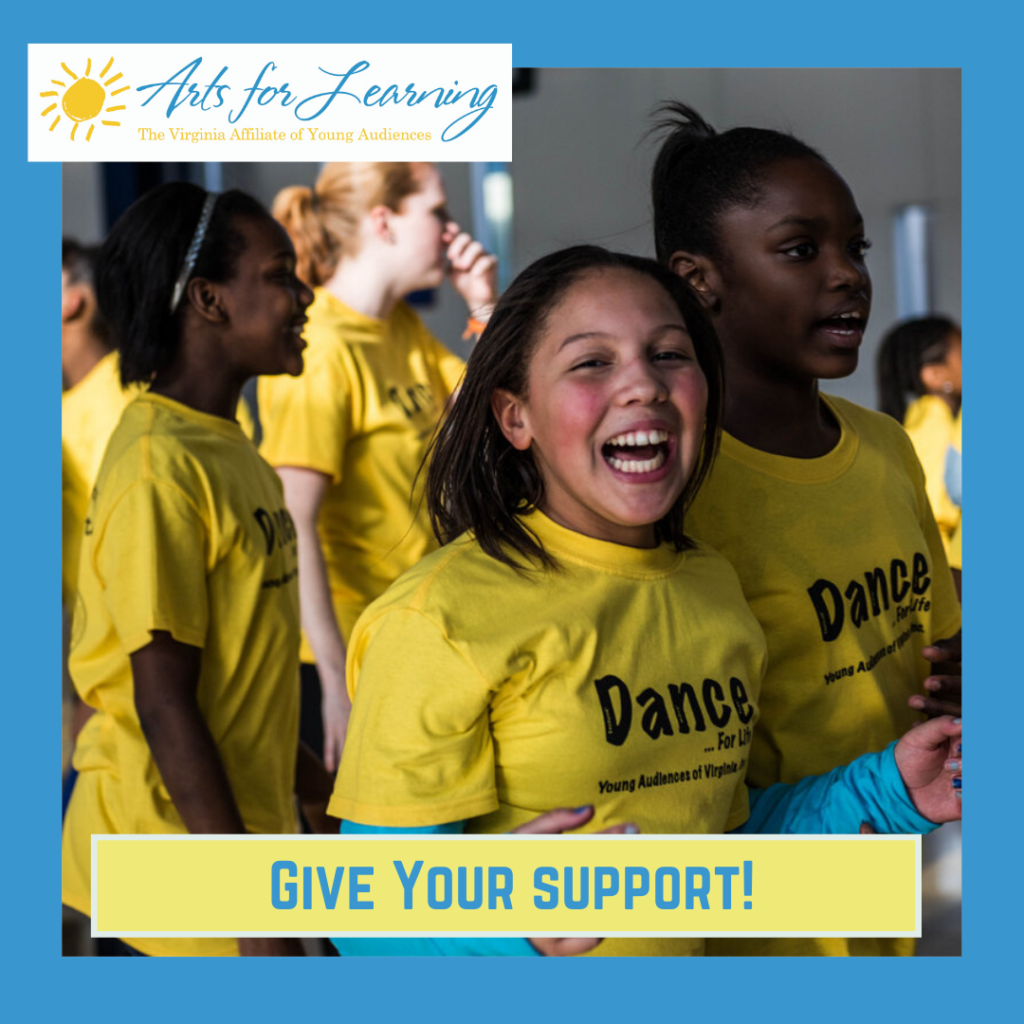Board of Directors Statement on
Access, Belonging, Inclusion, Diversity, and Equity (ABIDE)
December 2023
At a time of hard-fought national recommitment to the principle of justice for all people, Young Audiences of Virginia Inc. (doing business as Arts for Learning, the Virginia Affiliate of Young Audiences) declares its ongoing commitment to access, belonging, inclusion, diversity, and equity in all aspects of its mission and activities and at all levels of the organization.
We have a shared responsibility and accountability, as individuals and as a Board of Directors, to lead and model the changes we wish to see in our communities of valuing inclusion, justice, and equity for all.
ABIDE
Access: Access is ensuring that all people are able to enjoy the benefits, resources available, and full experiences of our community—regardless of whether they live with visible or invisible disabilities (e.g., low-vision, blindness, deafness, hearing loss, physical and mental disabilities, speech and language disorders, or cognitive and developmental disabilities).
Belonging: Belonging is having a sense that one is emotionally and socially supported in a space where each person feels welcome and valued.
Inclusion: Inclusion is the active, intentional, and ongoing engagement with diversity—in the curriculum, and in communities (intellectual, social, cultural, geographical) with which individuals might connect—in ways that increase awareness, content knowledge, cognitive sophistication, and empathic understanding of the complex ways individuals interact within systems and institutions.
Diversity: Diversity is acknowledging and valuing individual differences (e.g., personality, prior knowledge, and life experiences) and group/social differences (e.g., race/ethnicity, class, gender, sexual orientation, country of origin, and ability as well as cultural, political, religious, or other affiliations).
Equity: Equity is the creation of opportunities for historically underserved populations to have equal access to and participate in educational programs that can close the achievement gaps in student success.
The members of the Board of Directors believe in access and inclusion and support the election or hiring of diverse candidates to work in and with the organization. The board believes that having directors, staff, and performing/teaching artists of diverse race, socioeconomic status, gender expression, sexual orientation, age, culture, religious beliefs, ethnicity, and (dis)ability status (bringing varied skills, perspectives, and experiences) contributes to a balanced and effective organization, well-positioned to address the changing needs of the communities and children we serve.
The Board seeks to maintain an organizational culture where differences are welcomed, where different viewpoints are respectfully heard, and where each individual feels included and appreciated. The organization values diversity and equity in programming, in order to provide services that are embracing, inclusive, and culturally responsive. The Board, staff, and artists commit to challenging and responding to bias or discrimination wherever they are detected.
Arts for Learning affirms that all children deserve the right to an education that fosters their unique talents and allows them to experience and explore the arts. Indeed, we believe that education in the arts and humanities offers a vital avenue for improved critical thinking and promoting understanding which can ameliorate past injustices that have led to ongoing oppression and pain. Learners of all ages, abilities, and backgrounds should feel validated, included, and nurtured by the efforts of Arts for Learning. Knowing that growth and awareness require constant work, the organization commits to self-examination as a permanent part of its mission.
Arts for Learning likewise enthusiastically joins with a national coalition of arts education organizations in endorsing the following shared statement of belief:
It is imperative that all students have access to an equitable delivery of arts education that includes dance, media arts, music, theatre, and visual arts that supports their educational, social, and emotional well-being, taught by certified professional arts educators in partnership with community arts providers.




